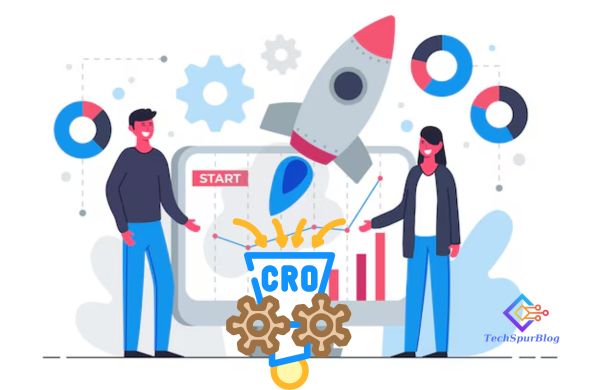
In the world of e-commerce, traffic to your website is just half of the battle. The real battle begins converting that traffic to sales. Conversion Rate Optimization is literally a disciplined and structured process of increasing the number of visits to your website that results in a conversion-be it some type of purchase, newsletter sign-up, or contact form.
In this post, we’ll talk about impactful ways in mastering CRO so your online activities are efficiently translated into bottom-line results.
Conversion Rate Optimization Definition
Conversion Rate Optimization is the process of analysis, experimentation, and change that improves the user experience on your website or application, driving more conversions. By maximizing existing traffic, you gain that much more for little extra cost, as opposed to the expense of attracting entirely new visitors.
Why is CRO Important?
Cost Efficiency: An increased conversion rate means you derive more value from the traffic you already have, thus cutting down your need for additional marketing spend.
Greater User Experience: Conversion optimization techniques usually tend to enhance a better experience for the user in general, thus enabling more loyalty to a brand or increased customer satisfaction.
Greater Revenue: Even a low conversion rate multiplies leads considerably and leads to substantial revenue augmentation.
Also Read: 10 Internet Marketing Tips to Take Your Business to the Next Level
10 Best Techniques for Conversion Optimization
Examine Your Current Performance
Understand your where you stand before you change. Have tools like Google Analytics analyze your website’s performances. Track on bounce rate, average session duration, and conversion rate to see those areas that require improvement.
Understand Your Audience
Understand your user. Research through such methods as testing with users and interviews to understand the preference, pain points, or behavior of your users. That will give you a head start in optimizing.
Optimize Your Landing Page
The most potent conversion driver is the landing page. Ensure that it has the following two core components:
Noise-free: remove all the unnecessary noise by eliminating such information, and use only one call-to-action
Visually attractive: Quality images, attractive layout, clear fonts.
Mobile-Friendly: With the increasing number of mobile users visiting websites, ensure that your landing pages look good in the mobile view.
A/B Testing
A/B Testing is a process of generating two different versions of a page to identify which one is performing better. Test different parts of it such as headlines, calls-to-action, images, and layout. Use all the gathered data to implement the most effective.
Social Proof
Testimonials, reviews, and case studies contribute to trust and credibility. When other people have shown that they have had good experiences with your product or service, then the potential customers can feel easy.
Improvement of the Site Speed
You get a very high impact on your conversion rates from how long it takes a website to load. Optimize images and reduce server responses, but make sure you use browser caching so your site loads up quick. It could be just a few seconds; however, Google says this delay may contribute to the heightened likelihood of bouncing.
Clear Call to Action
Your call to action should be clear and compelling. Use action words and ensure it jumps off the page at people. Test different placements and designs to see what works for your audience.
Make Checkout Fast and Frictionless
If you have an e-commerce site, then checkout is paramount. Streamline all the steps from purchase to complete checkout. Offer guest checkout capabilities. Then be up front about shipping and return information.
Leverage Retargeting Strategies
Retargeting ads are some ads that help re-win back the users who have not converted on their first visit. Showing the targeted ads to the users remind them about the products on which they probably perused, and thus they come back.
Monitor and Iterate
CRO is not a one-time thing. Monitor your website’s performance, get feedback from the users, and respond appropriately by readjusting the strategies. Continuous review of optimization efforts will keep one ahead of others.
Also Read: Google Ads vs Facebook Ads: Choosing the Right Platform for Your Business
Conclusion
Mastering Conversion Rate Optimization is important for any business looking to survive the competitive digital landscape. The strategies provided here will ideally enable you to turn traffic into sales while getting every value from your online presence. Remember that CRO is not an effort done once in a while but rather a continuous process that revolves around constant monitoring, testing, and improvement.
Frequently Asked Question’s
What is a decent conversion rate?
A good conversion rate depends on industry norms. Generally, 2-5% lies within the average range. Higher rates than that can also be achieved through effective optimization strategies.
How long does it take until you are seeing the fruits of CRO work?
This depends on the implementation of the change. Certain strategies, such as A/B testing, will yield results nearly instantly, whereas others could take weeks to show any better performance.
Do I really need a professional for CRO?
Undoubtedly, hiring a professional can be very beneficial, but most businesses can implement rather elementary CRO strategies alone, providing you have the right tools and knowledge.
What are ways of gauging the conversion rate?
You can measure your conversion rate using tools like Google Analytics. You can set up goals to measure specific actions taken by users on your site.
What role does the user experience play in CRO?
User experience is essential in CRO. A good experience may lead to high engagement with high chances of conversion, while a negative experience may scare potential customers away.
Do I need A/B testing to do CRO?
A/B testing is an extremely valuable tool in CRO because you’ll end up making your decisions based on real user behavior, thus increasing your chances of succeeding.
Does social media really affect my conversion rate?
Yes, by directing traffic to your site and by starting to build brand awareness and trust with your possible clients, social media can influence your conversion rate.

Leave a Reply